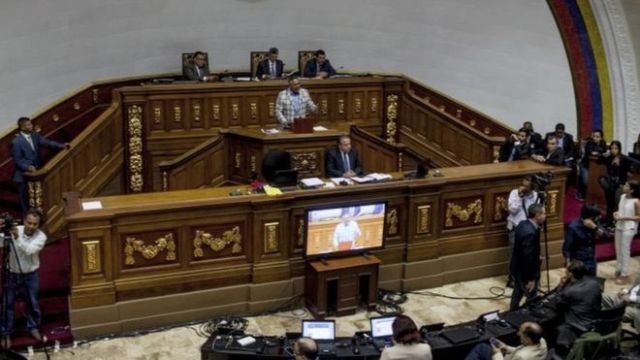On Thursday the National Assembly’s plan to hold a referendum to try and recall Mr Maduro, 53, was blocked by the Supreme Court – which Mr Maduro controls.
With that avenue closed, the opposition coalition has raised the stakes, using its power base in congress to begin legal action against Hugo Chavez’s unpopular successor.
On Sunday supporters of Mr Maduro stormed into the National Assembly as they were discussing how to proceed – with ugly scenes and scuffles inside the building.
On Monday Mr Maduro made a surprise trip to the Vatican, where Pope Francis attempted to reconcile the diametrically opposed factions in Venezuela. Jesus Torrealba, Venezuela’s opposition leader, then announced that talks would be held with the government this weekend, on the island of Margarita off the Venezuelan coast.
Yet the country is bracing itself for further protests on Wednesday, as the opposition rallies its supporters for “The Takeover of Venezuela,” to demand the ouster of Mr Maduro.
“In Venezuela we are battling Satan!” said another opposition leader, Henrique Capriles.













